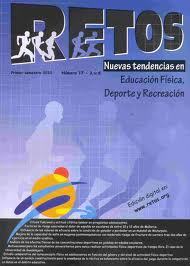Traditional games as a pedagogical strategy for the strengthening of cultural values in the community
DOI:
https://doi.org/10.47197/retos.v57.107996Keywords:
traditional games, cultural values, pedagogical strategy, community, education.Abstract
This research titled "Traditional Games as a Pedagogical Strategy for Strengthening Cultural Values in the Las Piñas Community" focused on evaluating the effectiveness of traditional games in promoting values such as respect, cooperation, honesty, and a sense of belonging among students. Using a quantitative, non-experimental, applied approach, a representative sample of 321 households from the Piña Norte and Piña Sur sections was selected. Questionnaires and participant observations were employed. The main instrument used was the “Estrategias Pedagógicas para el Fortalecimiento de Valores a través de Juegos Tradicionales en Educandos de Educación Inicial”, by Bracho and Bracho (2020). The results showed that 85% of participants perceived an increase in respect, 78% in cooperation, 74% in honesty, and 81% in a sense of belonging. The integration of traditional games into the educational curriculum is recommended as an effective strategy for the holistic development of students and the preservation of cultural identity.
Keys words: traditional games, cultural values, pedagogical strategy, community, education.
References
Barrios, N., Gutiérrez, D., Montenegro, V., Pineda, I., Barros, M., Rivera, N., y Olivares, O. (2018). Formación en valores mediante juegos tradicionales usando la investigación como estrategia pedagógica. Cultura, Educación y Socie-dad, 9(3), pp. 775-782. https://dialnet.unirioja.es/servlet/articulo?codigo=7823513
Blanco, G. A., y Passo, V. J. (2023). Los juegos tradicionales, factor que incide en el desarrollo de competencias inter-culturales. Hexágono Pedagógico, 14(1), pp. 64-74. https://dialnet.unirioja.es/servlet/articulo?codigo=9524359
Bracho, Y. C., y Bracho, K. J. (2020). Estrategias Pedagógicas para el Fortalecimiento de Valores a través de Juegos Tradicionales en Educandos de Educación Inicial. Conocimiento, Investigación, Educación, 1(9), pp. 26-44. https://revistas.unipamplona.edu.co/ojs_viceinves/index.php/CIE/article/view/4082/2339
Camargo, M., Cerra, N. T., y Cerra, J. A. (2023). Fortalecimiento de la identidad cultural a través de los juegos tradi-cionales zenú. Educ@ción en Contexto, 9(18). https://educacionencontexto.net/journal/index.php/una/article/view/211/405
Cerón, J. A., Cucas, J. A., Jurado, J. D., y Castañeda, J. G. (2022). Traditional games as a pedagogical strategy to strengthen cultural identity. Sinergias Educativas, 7(2), pp. 85. https://sinergiaseducativas.mx/index.php/revista/article/view/364/931
Montero, L. S. (2020). Los juegos libres, estrategia para mejorar el aprendizaje de lenguaje en básica secundaria. Zona Próxima, 36, pp. 114-137. https://www.redalyc.org/journal/853/85375376007/85375376007.pdf
Pillajo, E. G., Villrroel, P. C. (2021). El juego-trabajo como estrategia de enseñanza-aprendizaje en Educación Inicial. Vínculos, 6(3), pp. 69-78. https://journal.espe.edu.ec/ojs/index.php/vinculos/article/view/1811
Taro, J., y Pincay, M. A. (2023). Los juegos tradicionales como estrategia pedagógica para afianzar la identidad cultural en educación primaria. Warisata, 5(15), pp. 38-52. https://repositorio.redrele.org/bitstream/24251239/331/1/WARISATA_V5_N15_ART_3.pdf
Viejó, I., Cabezas, V., Pincay, I., Donoso, H., y Mendoza, J. (2022) Analysis of community communication, processes and psychological elements: Las Piñas citadel case of the Milagro City – Ecuador. Sapienza, 3(1), pp. 680–694.
Fernandez Ortega, J. A., Rodriguez Buitrago, J. A., & Sanchez Rodriguez, D. A. (2021). Aspectos centrales de la identi-ficación y desarrollo de talentos deportivos: revisión sistemática (Central aspects of the identification and develop-ment of sports talents: a systematic review). Retos, 39, 915–928. https://doi.org/10.47197/retos.v0i39.79323
Méndez-Giménez, A., & Fernández-Río, J. (2011). Análisis y modificación de los juegos y deportes tradicionales para su adecuada aplicación en el ámbito educativo (Analysis and modification of traditional games and sports towards their correct use in educational contexts). Retos, 19, 54–58. https://doi.org/10.47197/retos.v0i19.34638
Alonso Rueda, J. A., Zagalaz Sánchez, M. L., Cachón Zagalaz, J., & Castro López, R. (2015). Propuesta didáctica bilin-güe para educación física en educación primaria. Juegos populares y tradicionales ingleses (Bilingual proposal for teaching physical education in elementary education. Popular and traditional English games). Retos, 28, 116–121. https://doi.org/10.47197/retos.v0i28.34898
Downloads
Published
How to Cite
Issue
Section
License
Copyright (c) 2024 Retos

This work is licensed under a Creative Commons Attribution-NonCommercial-NoDerivatives 4.0 International License.
Authors who publish with this journal agree to the following terms:
- Authors retain copyright and ensure the magazine the right to be the first publication of the work as licensed under a Creative Commons Attribution License that allows others to share the work with an acknowledgment of authorship of the work and the initial publication in this magazine.
- Authors can establish separate additional agreements for non-exclusive distribution of the version of the work published in the journal (eg, to an institutional repository or publish it in a book), with an acknowledgment of its initial publication in this journal.
- Is allowed and authors are encouraged to disseminate their work electronically (eg, in institutional repositories or on their own website) prior to and during the submission process, as it can lead to productive exchanges, as well as to a subpoena more Early and more of published work (See The Effect of Open Access) (in English).
This journal provides immediate open access to its content (BOAI, http://legacy.earlham.edu/~peters/fos/boaifaq.htm#openaccess) on the principle that making research freely available to the public supports a greater global exchange of knowledge. The authors may download the papers from the journal website, or will be provided with the PDF version of the article via e-mail.


